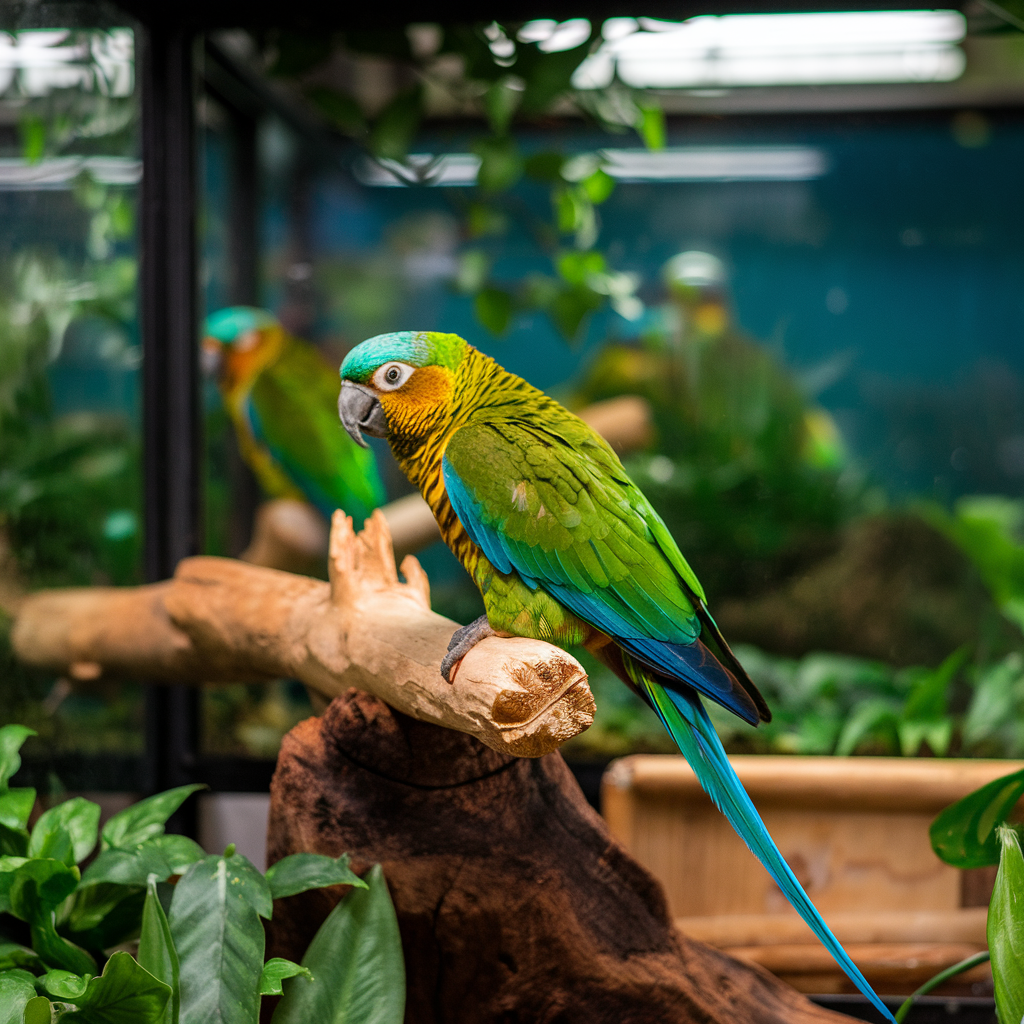The Colorful Companions: A Guide to Keeping Parrots as Pets

Parrots are among the most intelligent and vibrant pets you can own, known for their striking colors, playful personalities, and ability to mimic human speech. With a wide variety of species available, each with its own unique traits, parrots can make wonderful companions for those willing to invest the time and care they need. Here’s everything you need to know about keeping parrots as pets and ensuring they lead happy, fulfilling lives.
Why Parrots Make Great Pets
- Intelligence and Curiosity
- Parrots are highly intelligent animals that thrive on mental stimulation. Their curiosity leads them to explore their environment, making them engaging and interactive pets.
- Social and Affectionate
- Parrots are naturally social creatures that enjoy interacting with their owners. They can form strong bonds and often seek out companionship, making them loving members of the family.
- Vocal Abilities
- Many parrot species are capable of mimicking sounds, including human speech. This ability can lead to amusing interactions and conversations, creating a unique bond between you and your feathered friend.
- Long Lifespan
- With proper care, many parrots can live for decades. This long lifespan means that bringing a parrot into your home is a long-term commitment that can enrich your life for years to come.
Choosing the Right Parrot
When selecting a parrot, it’s essential to consider the species, size, and temperament, as each has different care needs.
1. Budgerigar (Budgie)
- Size: Small
- Personality: Friendly and playful, Budgies are a great choice for beginners. They can be taught to talk and are highly social.
2. Cockatiel
- Size: Small to medium
- Personality: Known for their affectionate nature, Cockatiels enjoy being handled and often bond closely with their owners. They are also known for their charming whistles.
3. African Grey
- Size: Medium
- Personality: Renowned for their intelligence and exceptional talking ability, African Greys require more attention and mental stimulation, making them suitable for experienced owners.
4. Macaw
- Size: Large
- Personality: Macaws are social, playful, and have strong personalities. They need ample space and social interaction, making them ideal for committed owners.
Setting Up a Parrot-Friendly Environment
- Spacious Cage
- Provide a large, sturdy cage that allows your parrot to move around comfortably. The cage should have horizontal bars for climbing and various perches of different sizes and materials.
- Safe Environment
- Ensure that the environment is safe for your parrot. Remove any toxic plants, and avoid exposure to harmful substances like smoke, strong cleaning chemicals, or non-stick cookware.
- Toys and Enrichment
- Parrots need plenty of toys to keep them mentally stimulated. Offer a variety of chew toys, foraging toys, and puzzles to engage their natural instincts and prevent boredom.
- Diet and Nutrition
- A balanced diet is crucial for a parrot’s health. Offer a variety of fresh fruits, vegetables, high-quality pellets, and seeds in moderation. Avoid avocado, chocolate, and other toxic foods.
Daily Care and Maintenance
- Social Interaction
- Parrots thrive on social interaction and should spend time outside their cage daily. Engage them with playtime, training, and companionship to strengthen your bond.
- Grooming Needs
- Regular grooming is essential. Offer opportunities for your parrot to bathe, either in a shallow dish or with a gentle mist. Keep their nails trimmed and check for any signs of feather problems.
- Health Monitoring
- Regular vet check-ups are important for monitoring your parrot’s health. Watch for signs of illness, such as changes in behavior, eating habits, or droppings.
- Training and Enrichment
- Spend time training your parrot using positive reinforcement techniques. Teaching them tricks and commands not only strengthens your bond but also provides mental stimulation.
Fun Facts About Parrots
- Social Learners: Parrots are known to learn from observing others, including humans. This social learning can make training easier and more engaging.
- Vocal Mimics: Some parrots can learn an extensive vocabulary and even imitate sounds from their environment, including ringing phones or doorbells.
- Colorful Communication: In the wild, parrots use their vibrant colors and vocalizations to communicate with each other, often signaling danger or attracting mates.
Conclusion
Parrots are captivating pets that bring joy, companionship, and a splash of color to any home. With their intelligence, social nature, and ability to mimic sounds, they can become beloved family members. By providing them with a safe, enriching environment, a balanced diet, and plenty of social interaction, you can ensure your parrot lives a happy and fulfilling life. Embrace the wonderful world of parrots, and enjoy the unique bond that comes from sharing your life with these incredible birds.



